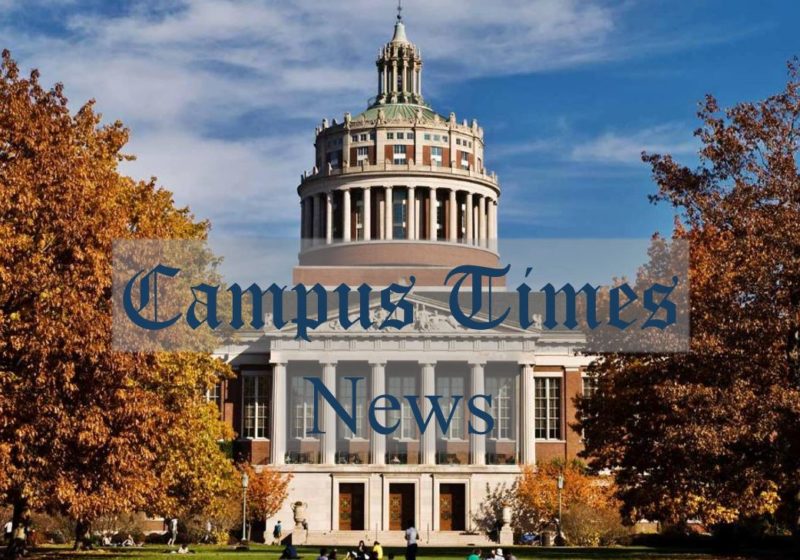The Hong Kong Student Association (HKSA) and Chinese Students’ Association (CSA) provided an environment for opposing perspectives this past Friday, when they hosted an open dialogue about the ongoing protests in Hong Kong.
After a brief presentation, the event organizers opened the floor for a discussion which contained a diverse set of strong opinions.
“I thought the discussion was productive in the sense that both sides got to hear the perspectives of the other side, but I felt like they were often kind of talking past each other and coming from really different assumptions about how politics should operate,” anthropology professor John Osburg said. “Hong Kong and mainland China have very different political systems and political cultures.”
HKSA and CSA’s presentation detailed Hong Kong’s unique relationship with mainland China dating back to the Sino-British Joint Declaration in 1984 .
The treaty ensured that Hong Kong would be ruled under a “one country, two systems” principle, permitting its capitalist system to continue for 50 more years without interference from the socialist system of the People’s Republic of China (PRC).
In February, Hong Kong’s government proposed legislation that would allow the extradition of its criminals to other countries, including mainland China, in response to the murder of a woman in Taiwan by a Hong Kong citizen a year prior.
Many citizens were concerned that the proposed bill clashed with Hong Kong Basic Law (their equivalent to a constitution), and that Beijing was attempting to infringe on their high degree of autonomy.
On June 9, around 1 million people took to the streets of Hong Kong in protest. The protests were relatively peaceful until June 12 when police fired the first rounds of tear gas and rubber bullets. This would fuel a protest four days later of 2 million people.
On Sept. 4, Chief Executive of Hong Kong Carrie Lam withdrew the bill but protests remained, as people called for fundamental political reforms, an independent investigation of what they see as the police’s excessive use of force, a retraction of labeling protesters as “rioters,” and amnesty for those arrested.
While discussing the events, some attendees spoke on China’s central government and its origins from Confucianism thousands of years ago. Some citizens, they said, willingly give up their rights to the government if it is providing for and protecting its people.
Others responded that that doesn’t invalidate a person’s ability to criticize an idea or policy.
A common point was that of foreign interference and an influx of western values coming to China. The common rebuttal was that protesters are not fighting for western values, but for human rights and universal suffrage.
“I would say the event went pretty well,” HKSA president and junior Selina Ka Lam Xu said. “People shared their thoughts on topics like freedom and rights, democracy, and patriotism. These topics have no definite right or wrong answers, but getting people to rethink about certain human values is pretty interesting, and this is what makes the discussion productive in my opinion.”
Despite differing opinions, attendees agreed that dialogue is necessary when controversial political issues arise, and that they are fortunate to attend a university where they can create safe spaces for discourse.
“It’s important to just sit down together with the other side and have a discussion about things that make us emotionally uncomfortable sometimes,” graduate student Se Hoon Kim said. “I think that’s the value of a university.”


